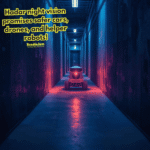A Last-Minute Crisis Sparks a Learning Revelation
Jeff Haden was fully prepped to speak at the Arabian Business Awards in Dubai. But just eight hours before the event, organizers asked him to cover a new, urgent topic.
With high-stakes attendees—including heads of state—Haden dove into full-cram mode. He rehearsed nonstop, even while showering and eating. While the talk went smoothly, he later wondered:
“What if fewer run-throughs and a few quiet breaks would’ve worked better?”
Turns out, science says: yes, absolutely.
The 10-Minute Rule, Backed by Science
A major 2022 study in Nature Reviews Psychology uncovered something surprisingly powerful:
Just 10 minutes of quiet, eyes-closed rest can boost memory recall—sometimes as much as a full night’s sleep.
Key insights from the study:
- Memory is strengthened during offline waking rest.
- These quiet moments allow your brain to replay and organize what you’ve just learned.
- This helps solidify new memories within minutes of learning.
Another study from Psychological Science (2016) found that learners who studied before bed, then reviewed after sleep, saw 50% higher long-term retention—with less overall study time.
So yes, the age-old advice to “sleep on it” now has a little brother:
“Rest on it—for just 10 minutes.”
What Actually Counts as a Brain-Boosting Break?
The research is very specific: not all rest is created equal.
Effective breaks:
- No screens, no scrolling, no talking
- Sit still, close your eyes, or go for a mindless walk
- Quietly stare out the window—or even exercise lightly
According to a 2023 study in the Journal of Epidemiology and Community Health, as little as 6 to 10 minutes of moderate exercise can boost working memory, planning, and focus—regardless of when you do it.
“Offline rest and short bursts of activity give your brain breathing room to process information.”
Even Haden admitted:
“If I’d taken 10 quiet minutes instead of powering through, I probably would’ve retained more—and felt less stressed.”
How to Use This Rule in Real Life
Next time you’re prepping something big—a pitch, exam, or presentation—try this easy rhythm:
- Study or rehearse for 30–40 minutes
- Take a 10-minute rest (silent, screen-free)
- Repeat
It’s simple. It’s research-backed. And it might make you sharper than ever.
“Breaks aren’t slacking. They’re part of the process.”





















